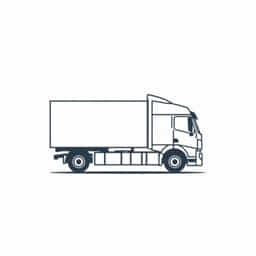New lorry prices in the UK vary widely depending on size, purpose, and technology. Whether you’re in the market for a light commercial vehicle, a heavy goods truck, or an electric alternative, staying informed about current costs is essential. With updated vehicle excise duty, HGV levies, tax implications for electric and double-cab pickups, and evolving market trends, prospective buyers need a comprehensive guide to navigate pricing and ownership expenses effectively. This topic breaks down new lorry prices, associated taxes, and key considerations for buyers in 2025.
Price Range for New Lorries
The starting point for new heavy trucks also known as lorries or HGVs varies by manufacturer and model. For example, a brand-new Mercedes-Benz Actros, a popular tractor unit, can cost around £99,000 to £115,000 plus VAT depending on specification
Smaller rigid lorries, such as the Mercedes-Benz Atego 1323L rigid models, are more affordable, with prices around £67,749 plus VAT
Breakdown of Typical Price Tiers
- Heavy tractor units: £99,000-£115,000+ VAT (e.g. Actros 2545/46)
- Hook loader trucks: Up to £147,500+ VAT for advanced configurations like the Arocs 6×2
- Smaller rigid lorries: Starting from £67,749+ VAT (e.g. Atego)
Additional Tax Costs to Know
Owning a new lorry also involves road tax and related fees. Vehicle Excise Duty (VED) varies based on weight and emissions. Heavy goods vehicles over 3,500¯kg pay between £80 and £850 annually, depending on size and axle configuration
A separate HGV levy applies to vehicles over 12,000¯kg, ranging from £150 to £749 per year, or a daily rate of £3-£10
Fuel and Van Tax Updates
Road tax for light commercial vehicles and pickup trucks remains at a flat £345 per year
Fuel duty is frozen at 52.95p per litre until March 2026, easing operating costs for fleets
Electric Lorries and Premium Pricing
Electrification is growing, though electric lorries remain at the top of the price range. Electric heavy trucks currently cost between â¬250,000 and â¬400,000 (£220k-£350k)
Additional total cost of ownership savings from reduced fuel and emissions must be weighed against high upfront cost and limited charging infrastructure
Impact on Businesses and Buyers
For commercial buyers, initial purchase price, running costs, tax liabilities, and potential grants such as EV subsidies must be carefully considered. VAT-registered businesses can reclaim VAT on vehicles over 1¯tonne payload
Purchasing before April¯2025 allows pickup buyers to benefit from commercial classification tax treatment
Trends in the UK Lorry Market
Market analysis shows fluctuations in demand. Light commercial vehicle registration in May¯2025 fell nearly 12¯% year-over-year, with electric truck uptake still under 1¯%
UK truck market value grew in 2024 after previous dips, but the shift to electrified fleets is gradual
Key Observations:
- New heavy truck prices reach £100k+ for premium models.
- Tax costs include VED (£80-850¯/yr), HGV levy (£150-749¯/yr), and flat van tax (£345/yr).
- Electric trucks are priced much higher (â¬250k-400k) but offer long-range and environmental advantages.
- Tax classifications for pickups changing, affecting future purchases.
- EV market remains in its early stages with limited infrastructure.
Tips for Buyers
When budget planning for a new lorry, include these considerations:
- Determine your payload needs and choose the right size/category.
- Factor in VAT reclaim if payload >1¯tonne and you’re VAT-registered.
- Assess fuel duty, VED, and HGV levy based on vehicle specs.
- If considering electric, estimate charging infrastructure and grants.
- Purchase pickups before April¯2025 to retain commercial tax status.
- Monitor market trends to time your investment wisely.
New lorry prices in the UK reflect advanced engineering and regulatory costs. Premium models like Mercedes Actros start at around £99k+ VAT, with smaller rigs costing less. Tax obligations such as VED, HGV levy, and fuel duty remain significant considerations, while electric lorries introduce both opportunity and complexity due to high purchase prices and evolving infrastructure.
Buyers should carefully assess both upfront costs and total ownership expenses, including VAT reclaim options and upcoming tax changes. By staying informed and timing purchases strategically, businesses and individuals can secure the right lorry to fit operational needs and budget constraints.
:
